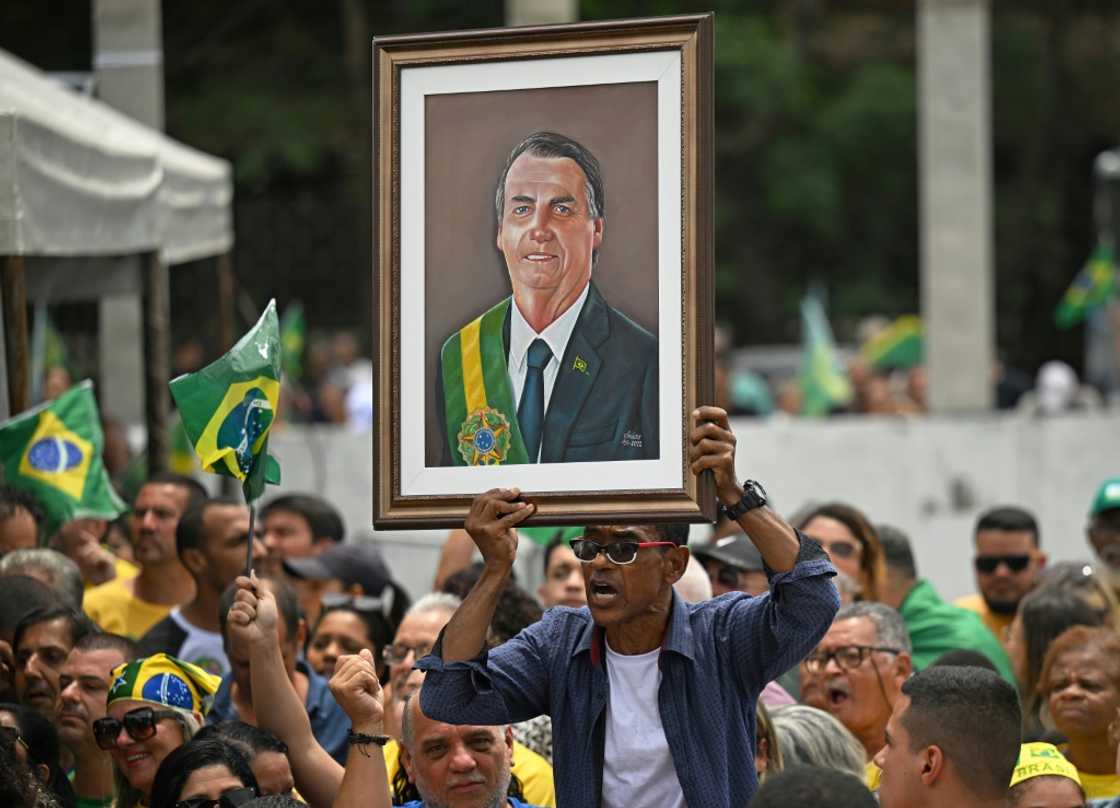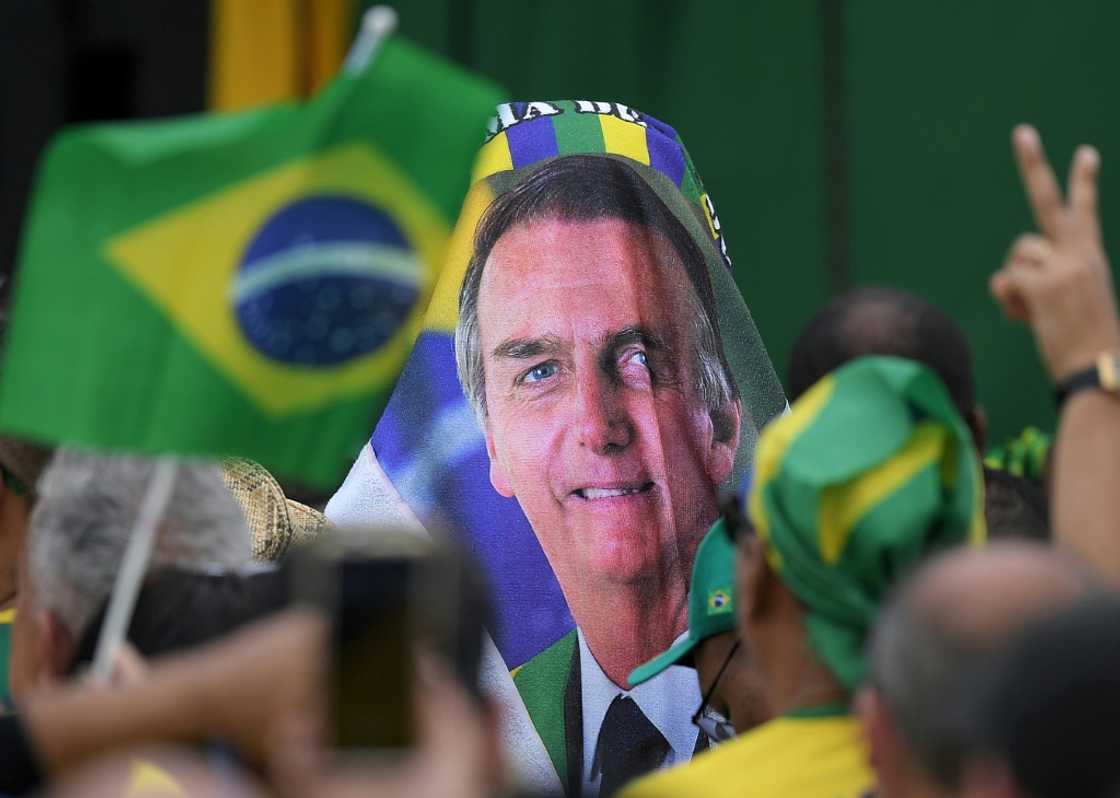In Brazil, Bolsonaro's far-right echoes Trump's

Source: AFP
PAY ATTENTION: Сheck out news that is picked exactly for YOU ➡️ find “Recommended for you” block on the home page and enjoy!
"Bolsonarismo," the Brazilian far-right movement built around President Jair Bolsonaro, shares much in common with ultra-conservatives in power in Europe -- Hungary, Poland and soon Italy -- but is closer to Donald Trump and the US alt-right.
Whether or not Bolsonaro wins his uphill fight for re-election against veteran leftist Luiz Inacio Lula da Silva in Brazil's October 30 runoff, the far-right's arrival in power in Brazil, as elsewhere, is linked to deep social upheaval, analysts say.
"All these far-right movements are rooted in an economic and social crisis that is growing worse by the year: rising inequality, declining income for the working and middle classes," says Christophe Ventura, a Latin America specialist at the French Institute for International and Strategic Affairs (IRIS).
"That has triggered the rise of widespread mistrust."
The response, he says, has followed a similar pattern internationally: a rejection of "rotten and incompetent" traditional politicians in favor of "virtuous citizens and a more authoritarian government" to right the wrongs unleashed by globalization and free trade -- blamed for all ills.
In Europe, Italy's Fratelli d'Italia, Hungary's Fidesz, Poland's Law and Justice party, the Sweden Democrats and France's Rassemblement National and Reconquete all "accuse immigrants of causing every crisis and want to close the borders," says Geraldo Monteiro, head of the Brazilian Center for Democracy Studies and Research at Rio de Janeiro State University (UERJ).
PAY ATTENTION: Enjoy reading our stories? Join YEN.com.gh's Telegram channel for more!
The Brazilian context is different: no longer a major immigration destination, "immigrants aren't a big subject," and Islamophobia and anti-Semitism are less prevalent than in Europe, says Monteiro.
Bolsonarismo's version of "national solidarity" is instead a battle of "good people" versus the "corrupt."
Internal enemies include the LGBT community, Indigenous peoples, environmental and human-rights activists, the media, academics and the cultural elite -- all lumped together with Lula and the "communist" left.
Strong men
As with far-right movements everywhere, Bolsonarismo's Holy Trinity is God, country and family.
The latter, say true believers, is under threat from gay marriage, abortion and "gender ideology."
Whereas conservative Catholics are the core of the European far-right, in Brazil, it is the powerful, fast-growing Evangelical movement.

Source: AFP
Bolsonaro's movement is also more military in nature than its European cousins, says Monteiro.
He says Brazil "still carries the memory of the military dictatorship" (1964-1985) -- fondly, in ex-army captain Bolsonaro's case -- and the president has actively courted military support, naming generals to powerful posts in his administration.
He has also energetically promoted gun ownership, signing a raft of legislation and decrees intended to help "good people" defend themselves and their property -- a viewpoint that "doesn't exist in Europe," says Ventura.
"The primary reference point" for Bolsonaro's far-right has been Donald Trump's United States, he adds, drawing parallels with the American alt-right and Tea Party movements.
It is a brand of populism in which "the leader is the direct representative of the people," says Mayra Goulart, a political scientist at Rio de Janeiro Federal University (UFRJ).
Anything supporters perceive as interfering with that direct democracy -- political parties, institutions, the media -- comes under attack.
Like the US alt-right, Bolsonaro's movement has attacked Brazil's democratic institutions as enemies of the people, notably the Supreme Court and the supposedly fraud-plagued election system.
Many observers fear a Brazilian version of Trump supporters' attack on the US Capitol if Bolsonaro loses on October 30.
Like Trump -- who recently gave him a glowing endorsement -- Bolsonaro regularly insults journalists and attacks the "fake news" media.
He prefers to communicate directly with supporters on social media -- which is inundated with "alternative truth" and conspiracy theories.
Hate speech
Trump's influence is also visible in Bolsonaro's climate-change skepticism and resistance to expert advice on handling Covid-19.

Source: AFP
The US and Brazilian movements also share a "pro-market, pro-business discourse," says Goulart.
Free speech is upheld as an absolute right -- unfiltered hate speech and disinformation included.
Both Trump and Bolsonaro ran as political outsiders and achieved "unexpected" victories, says Monteiro.
And both "easily draw thousands of supporters into the streets."
New feature: Сheck out news that is picked for YOU ➡️ find “Recommended for you” block on the home page and enjoy!
Source: AFP





